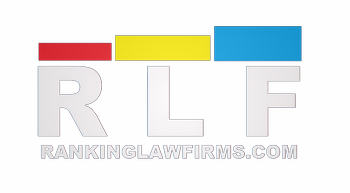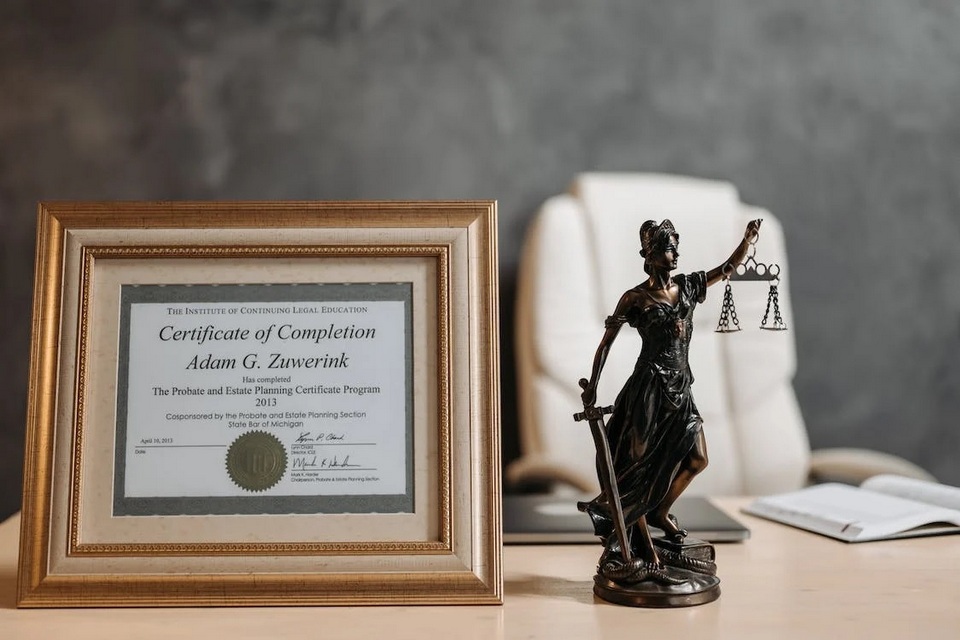Last Updated on March 23, 2024 by Ranking
Continuing Legal Education (CLE) is an essential requirement for attorneys to maintain their competence in the legal profession. As officers of the legal system, attorneys have a special responsibility for the quality of justice. To uphold this responsibility and ensure the integrity of the profession, most jurisdictions have adopted mandatory CLE requirements. In this comprehensive guide, we will explore the various aspects of CLE, including the requirements in different jurisdictions, exemptions, and opportunities for attorneys to fulfill their obligations.
Why Continuing Legal Education Matters
Continuing Legal Education is crucial for attorneys to stay updated with the law, legal skills, ethical obligations, and practice management. By constantly expanding their knowledge and skills, attorneys can maintain their competence and provide the highest quality of legal representation to their clients. CLE also plays a significant role in maintaining public confidence in the legal profession and the fair administration of justice.
The American Bar Association (ABA) emphasizes the importance of CLE in preserving public confidence and promoting the rule of law. The ABA has set an example for licensing jurisdictions with its Model Rule for MCLE credits. According to the Model Rule, attorneys are required to complete an average of 15 credit hours per year, including specific categories such as ethics, mental health and substance abuse, and diversity and inclusion.
Variations in MCLE Requirements
While the ABA’s Model Rule provides a framework for MCLE requirements, each jurisdiction has the flexibility to adopt its own regulations. As a result, MCLE requirements can vary significantly from state to state. Let’s explore some of the variations in MCLE requirements that attorneys may encounter:
Out of State Attorneys
Attorneys who are licensed in one state but practice outside of that state may still be required to comply with the MCLE requirements of their home jurisdiction. However, some state bars allow attorneys to satisfy their home jurisdiction’s requirements by demonstrating compliance with the MCLE requirements of the jurisdiction in which they reside and practice. For example, Washington permits its active members to certify compliance with its rules by demonstrating compliance with the MCLE requirements of another jurisdiction.
Exemptions for Non-Practicing Attorneys
Exemptions from MCLE requirements may apply to non-practicing attorneys with inactive licenses or those on retired status. In Wisconsin, for instance, members of the bar who do not practice law in the state during a reporting period are exempt from MCLE requirements. Exemptions can vary from state to state, so it’s essential for attorneys to understand the specific exemptions that apply to their situation.
Government Officials and MCLE
Some states may exempt government officials from MCLE requirements, although reporting their exempt status may still be necessary. The scope of exemptions can vary, ranging from specific exemptions for judges, legislators, or attorneys in active duty military service, to broader exemptions for all federal government attorneys. For example, North Carolina exempts members of the United States Senate and House of Representatives from its MCLE requirements during their service in those capacities.
Penalties for Non-Compliance
Failure to comply with MCLE requirements can lead to penalties, which vary from state to state. Penalties may include fines, suspensions, or other disciplinary actions. Attorneys should be aware of the consequences of non-compliance in their jurisdiction and strive to meet their obligations.
MCLE Requirements by Jurisdiction
Each state, along with the District of Columbia and U.S. territories, has its own set of MCLE requirements. These requirements can vary in terms of reporting periods, credit hours, and specific course categories. The following table provides a summary of basic MCLE requirements for active members of the bars in different jurisdictions:
| Jurisdiction | Reporting Period | General MCLE Requirements per Reporting Period | Rules Available |
|---|---|---|---|
| Alabama | 1 year | 12 hours, including 1 hour of ethics | MCLE, Alabama State Bar |
| Alaska | 1 year | 12 hours, including 1 hour of ethics/professionalism | MCLE Rule, Alaska Bar Association |
| American Samoa | N/A | No MCLE requirement at this time | High Court Rules, American Samoa Bar Association |
| Arizona | 3 years | 45 hours, including 7 hours of ethics | Mandatory Continuing Legal Education, State Bar of Arizona |
| Arkansas | 1 year | 12 hours, including 1 hour of ethics/professionalism | Continuing Legal Education, Arkansas Judiciary |
| California | 3 years | 15 hours per year, including 3 hours of ethics or other professional responsibility topics | MCLE Rules, State Bar of California |
| Colorado | 3 years | 45 hours, including 7 hours of ethics | CLE Rules, Regulations, and Forms, Office of Attorney Regulation Counsel, Colorado Supreme Court |
| Connecticut | 1 year | 12 hours, including 2 hours of ethics/professionalism | Minimum Continuing Legal Education, State of Connecticut Judicial Branch |
| Delaware | 2 years | 24 hours, including 4 hours of ethics/professionalism | Revised Delaware Rules for Continuing Legal Education, Commission on Continuing Legal Education of the Delaware Supreme Court |
| District of Columbia | N/A | No MCLE requirement at this time | D.C. Rules of Professional Conduct |
| Florida | 3 years | 33 hours, including 5 hours of ethics/professionalism, bias elimination, substance abuse, or mental illness awareness | CLER/BSCR Rules, Florida Bar |
| Georgia | 1 year | 12 hours, including 1 hour of ethics/professionalism and 3 hours of trial practice for trial attorneys | State Bar Handbook Part VIII – Continuing Legal Education, State Bar of Georgia |
| Guam | 1 year | 10 hours, including 2 hours of ethics/professionalism | Continuing Legal Education Hours, State Bar Association of Guam |
| Hawaii | 1 year | 3 hours, including 1 hour of ethics/professional responsibility every 3 years | Mandatory Continuing Legal Education, Hawaii State Bar Association |
| Idaho | 3 years | 30 hours, including 3 hours of ethics | MCLE Compliance, Idaho State Bar |
| Illinois | 2 years | 30 hours, including 6 hours of professionalism, civility, legal ethics, diversity and inclusion, or mental health and substance abuse | Illinois MCLE Requirements and Fees, Minimum Continuing Legal Education Board of the Supreme Court of Illinois |
| Indiana | 3 years, with minimum yearly requirements | 36 hours, including 3 hours of ethics/professional responsibility | Continuing Legal Education for Attorneys, Indiana Commission for Continuing Legal Education |
| Iowa | 1 year | 15 hours, with 3 hours of ethics every 2 years | Annual Reporting Requirements, Office of Professional Regulation, Iowa Supreme Court |
| Kansas | 1 year | 12 hours, including 2 hours of ethics/professionalism | Rules and Regulations, Kansas Continuing Legal Education Commission |
| Kentucky | 1 year | 12 hours, including 2 hours of ethics/professionalism | Continuing Legal Education Rules, Kentucky Bar Association |
| Louisiana | 1 year | 12.5 hours, including 1 hour of ethics/professionalism | MCLE Rules, Louisiana State Bar Association |
| Maine | 1 year | 12 hours, including 1 hour of ethics/professionalism and 1 hour of avoidance of harassment and discriminatory conduct | Continuing Legal Education, Board of Overseers of the Bar, State of Maine |
| Maryland | N/A | No MCLE requirement at this time | Maryland Attorneys' Rules of Professional Conduct and Attorney Trust Accounts, Attorney Grievance Commission and Office of Bar Counsel |
| Massachusetts | N/A | No MCLE requirement at this time | Massachusetts Rules of Professional Conduct, Supreme Judicial Court |
| Michigan | N/A | No MCLE requirement at this time | Michigan Rules of Professional Conduct, Michigan Supreme Court |
| Minnesota | 3 years | 45 hours, including 3 hours of ethics/professional responsibility and 2 hours of elimination of bias | CLE Compliance, Minnesota State Board of Continuing Legal Education |
| Mississippi | 1 year | 12 hours, including 1 hour of ethics/professionalism | Continuing Legal Education General Information, Supreme Court of Mississippi |
| Missouri | 1 year | 15 hours, including 2 hours of ethics/professionalism | Frequently Asked Questions About MCLE, Missouri Bar |
| Montana | 1 year | 15 hours, including 2 hours of ethics | Continuing Legal Education, Montana Commission of Continuing Legal Education |
| Nebraska | 1 year | 10 hours, including 2 hours of ethics/professional responsibility | Mandatory Continuing Legal Education (MCLE), Nebraska Supreme Court |
| Nevada | 1 year | 13 hours, including 2 hours of ethics and professional conduct and 1 hour of substance abuse | Mandatory Continuing Legal Education, State Bar of Nevada |
| New Hampshire | 1 year | 12 hours, including 2 hours of ethics/professionalism or prevention of malpractice, substance abuse, or attorney-client disputes | Rule 53. New Hampshire Minimum Continuing Legal Education Requirement, Supreme Court of the State of New Hampshire |
| New Jersey | 2 years | 24 hours, including 4 hours of ethics/professionalism | Continuing Legal Education, Supreme Court of New Jersey |
| New Mexico | 1 year | 12 hours, including 2 hours of ethics/professionalism | Minimum Continuing Legal Education, State Bar of New Mexico |
| New York | 2 years | 24 hours, including 4 hours of ethics and professionalism and 1 hour of diversity, inclusion, and elimination of bias | The Legal Profession – Continuing Legal Education, New York State Unified Court System |
| North Carolina | 1 year | 12 hours, including 2 hours of ethics/professionalism | CLE Requirements in North Carolina for Lawyers, North Carolina State Bar |
| North Dakota | 3 years | 45 hours, including 3 hours of ethics/professional responsibility | North Dakota Rules of Professional Conduct, North Dakota Legislature |
| Northern Mariana Islands | 2 years | 20 hours required | Resources for Continuing Legal Education, CNMI Bar Association |
| Ohio | 2 years | 24 hours, including 2.5 hours of ethics or other professional conduct topics | Continuing Legal Education, Supreme Court of Ohio |
| Oklahoma | 1 year | 12 hours, including 1 hour of ethics, professional responsibility, or malpractice prevention | Mandatory Continuing Legal Education Rules, Oklahoma Mandatory Continuing Legal Education Commission |
| Oregon | 3 years | 45 hours, including 5 hours of ethics, 1 hour on attorneys’ statutory duty to report child or elder abuse, and 1 hour on mental health, substance abuse, and cognitive impairment | Minimum Continuing Legal Education, Oregon State Bar |
| Pennsylvania | 1 year | 12 hours, including 2 hours of ethics, professionalism, or substance abuse | Rules and Regulations, Continuing Education Board |
| Puerto Rico | 2 years | 24 hours, including 4 hours of ethics, and 6 hours of notarial law for notaries | Links Related to the Supreme Court, Supreme Court of Puerto Rico |
| Rhode Island | 1 year | 10 hours, including 2 hours of ethics | Mandatory Continuing Legal Education, MCLE Commission |
| South Carolina | 1 year | 14 hours, including 2 hours of legal ethics/professional responsibility and 1 hour of substance abuse, mental health, or stress management | Commission on CLE and Specialization, Supreme Court of South Carolina |
| South Dakota | N/A | No MCLE requirement at this time | South Dakota Rules of Professional Conduct, South Dakota Legislature |
| Tennessee | 1 year | 15 hours, including 3 hours of ethics/professionalism | Rule 21 and Regulations, Tennessee Commission on Continuing Legal Education |
| Texas | 1 year | 15 hours, including 3 hours of ethics/professional responsibility | MCLE Rules, State Bar of Texas |
| Utah | 2 years | 24 hours, including 3 hours of ethics or professional responsibility, with 1 hour in professionalism and civility | MCLE Requirements, Utah State Bar |
| Vermont | 2 years | 20 hours, including 2 hours of ethics | Vermont Mandatory Continuing Legal Education |
| Virginia | 1 year | 12 hours, including 2 hours of ethics/professionalism | Mandatory Continuing Legal Education, Virginia State Bar |
| U.S. Virgin Islands | 1 year | 12 hours, including 2 hours of ethics/professionalism | CLE Overview, Virgin Islands Bar Association |
| Washington | 3 years | 45 hours, including 6 hours of ethics and professional responsibility and 15 hours of law and legal procedure | MCLE for Lawyers, Washington State Bar Association |
| West Virginia | 2 years | 24 hours, including 3 hours in ethics, office management, substance abuse, or elimination of bias in the legal profession | CLE Rules and Regulations, West Virginia State Bar |
| Wisconsin | 2 years | 30 hours, including 3 hours of ethics/professional responsibility | SCR Chapter 31, Supreme Court Rules, Wisconsin State Legislature |
| Wyoming | 1 year | 15 hours, including 2 hours of ethics | Continuing Legal Education, Wyoming State Bar |
Please note that this table provides a summary of basic requirements, and attorneys should refer to the specific rules and regulations of their jurisdiction for detailed information.
Fulfilling CLE Obligations
Attorneys have various opportunities to fulfill their CLE obligations and enhance their professional development. One such opportunity is the Federal Law Update (FLU), a series of CRS legal seminars held annually. The FLU covers highly topical legal issues relevant to the legislative agenda. Attorneys can attend these seminars and potentially earn CLE credits, subject to the approval of their jurisdiction’s MCLE requirements.
In addition to the FLU, attorneys can explore other avenues for CLE, such as state bar associations, legal organizations, and online platforms that offer approved CLE courses. These courses cover a wide range of topics, allowing attorneys to tailor their continuing education to their practice areas and interests.
Continuing Legal Education is an essential aspect of maintaining competence and upholding the integrity of the legal profession. Attorneys should familiarize themselves with the specific MCLE requirements of their jurisdiction and ensure compliance. By actively pursuing continuing education, attorneys can stay updated with the law, enhance their skills, and provide the highest quality of legal representation to their clients.




